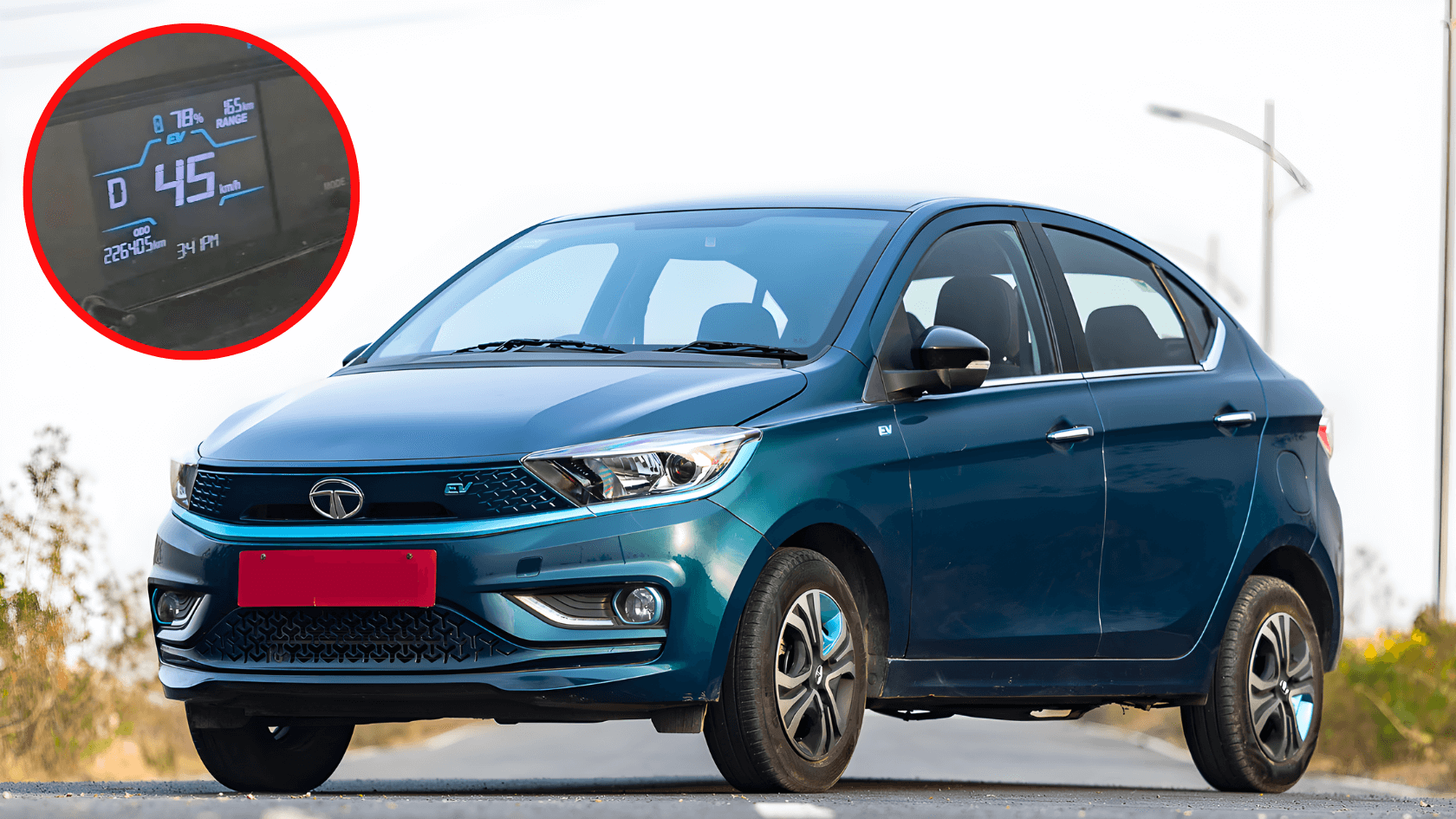
A Tata Tigor EV owner from Gurgaon has achieved an impressive milestone, covering 2,26,403 km in just three years with almost no noticeable battery degradation.
The story surfaced through an EV-focused video channel, offering valuable insight into the long-term durability of Tata’s electric powertrain, an aspect many new EV buyers remain concerned about.
The Owner’s Real-World Experience
The Tigor EV in question is the 25 kWh variant, used as a commercial vehicle operating mainly around Gurgaon and Delhi NCR. The owner, Akbar, charges the vehicle at the Google Gurgaon office, where he works as a cab driver.
Thanks to regular access to workplace charging, the EV fits seamlessly into his daily routine.
Despite the vehicle being driven extensively, far more than a typical private EV, its performance has remained consistent:
-
Real-world range (with AC): ~200 km
-
Fast charging time (office charger): ~1–1.25 hours
-
Battery health: No significant range loss after 2.26 lakh km
-
Range fluctuation: Only ±10–20 km, depending on AC usage and driving style
For an EV with this kind of mileage, maintaining a consistent range is notable.
Even after 3 years and over 2 lakh km of commercial usage, the Tigor EV continues to deliver the same ~200 km range that it offered when new.
Why This Matters
Battery degradation is one of the biggest worries among first-time EV buyers in India. Many fear that their vehicle’s range will drop drastically within a few years. But this case of a Tigor EV covering 2.26 lakh km with virtually zero performance drop counters those concerns.
Tata Motors originally offered an 8-year / 1,60,000 km battery warranty, and newer EVs from various manufacturers now come with 10–15 year warranties, signalling improved confidence in modern battery packs.
This real-world example shows that:
-
Tata’s EV battery chemistry and thermal management are holding up well.
-
Commercial usage, often considered harsher, hasn’t significantly affected performance.
-
Long-term EV ownership may be more reliable than many buyers expect.
Running Cost Benefits
The owner highlights another major advantage: low operating cost.
A full charge costs him roughly ₹180, and he estimates that each charge comfortably earns him ₹1,800 through rides, showing a strong economic case for EVs in commercial operations. Read more – EV vs Petrol/Diesel Cars – Tested Running Costs Comparison.
Maintenance has also been minimal, with no major failures reported despite the high mileage.
EV Reliability: Real Stories vs Misconceptions
Tata EVs often face criticism related to service quality or build expectations. However, real owner experiences like this one highlight the other side of the story, where a well-used EV delivers durability, consistency, and long-term cost efficiency.
As the video creator noted, people who have never owned a Tata EV often repeat negative assumptions, while actual long-term users tend to report positive and consistent performance.
What This Means for New EV Buyers
This case provides important takeaways for prospective EV customers:
-
Modern EV batteries are significantly more durable than people assume.
-
Long-term range loss may be minimal if the vehicle is charged responsibly.
-
Regular AC usage or heavy driving has only a slight impact on range.
-
Commercial operators can benefit the most due to low running costs.
With India seeing broader EV adoption and manufacturers rolling out longer warranties, this Tigor EV example sets a strong benchmark for reliability.
Watch Full Video Here:
This post was last modified on November 15, 2025 11:59 am
November 15, 2025 11:58 am
